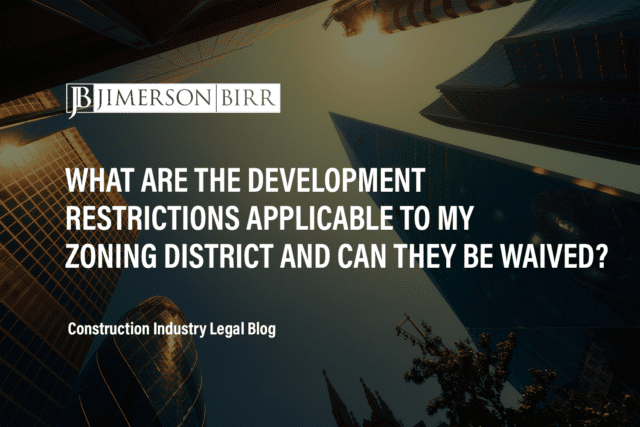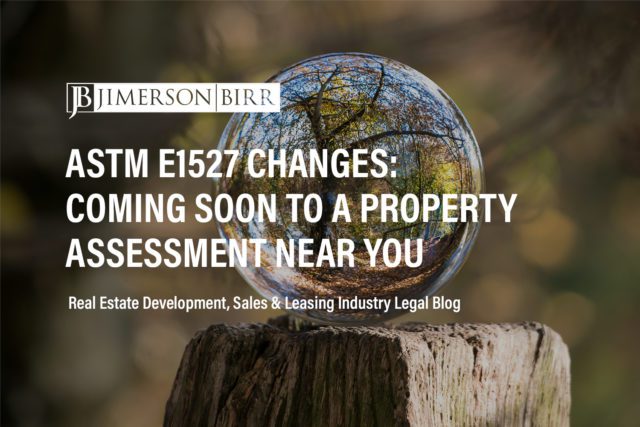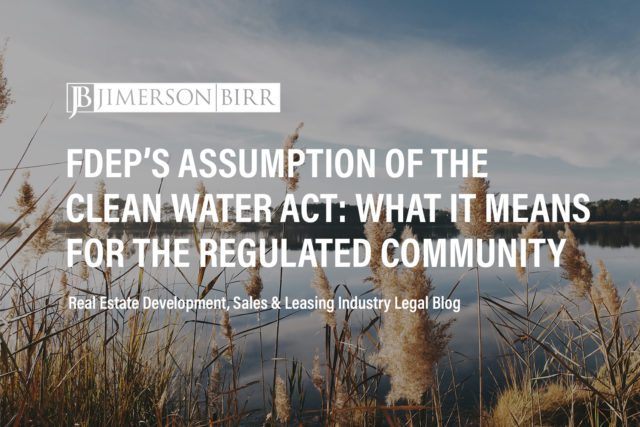What do toxic torts and chemical exposure entail?
Toxic torts and chemical exposure involve claims for damages caused by exposure to harmful substances or dangerous chemicals. In Florida, toxic tort litigation arises when toxic substances released into the environment harm individuals or entities. Such cases often involve complex legal, scientific, and medical issues. In Florida, toxic tort claims are available under state or federal law, depending on the circumstances surrounding the alleged harm.
For example, under Florida law, a plaintiff might allege exposure to contaminated groundwater due to a nearby facility’s negligent disposal of hazardous waste. In this case, the plaintiff would seek damages for personal injuries and property damage arising from the exposure.
Alternatively, a plaintiff could file a lawsuit under the federal Comprehensive Environmental Response, Compensation, and Liability Act (CERCLA) if their exposure links to a site designated for cleanup under the federal Superfund program. In both instances, plaintiffs must demonstrate that the defendants’ actions caused their injuries and that the injuries are attributable to the toxic substances at issue.
Need help regarding environmental due diligence, permitting, mitigation, or compliance? Schedule your consultation today with a top environmental law attorney.
Which laws and regulations apply to toxic torts and chemical exposure in Florida?
Florida’s environmental laws and regulations for toxic torts and chemical exposure include the Florida Pollutant Discharge Prevention and Control Act and the Florida Resource Recovery and Management Act, which impose liability for damages caused by releasing hazardous substances into the environment.
At the federal level, the CERCLA and the Resource Conservation and Recovery Act (RCRA) (42 USC §§ 6901-6992k) are essential statutes that govern toxic torts and chemical exposure. CERCLA, also known as the Superfund law, allows the government to hold parties responsible for the cleanup of contaminated sites and to recover damages for natural resource injuries. RCRA, on the other hand, governs the management of hazardous waste and imposes strict liability on those who generate, transport, treat, store, or dispose of hazardous waste.
What common issues regarding toxic torts and chemical exposure lead to litigation?
The following issues are among the most common in actions regarding toxic torts and chemical exposure in environmental law matters:
- Causation: Plaintiffs must establish a direct link between their injuries and the defendants’ actions, which can be challenging due to the complexity of scientific and medical evidence.
- Latent injuries: Some health problems caused by toxic exposure may not manifest immediately, leading to disputes over statutes of limitations and delayed discovery.
- Multiple defendants: Cases often involve multiple parties, making it difficult to apportion liability and damages.
- Environmental cleanup: Plaintiffs may seek compensation for the remediation cost, but determining the extent of cleanup required can be contentious.
- Property devaluation: Toxic exposure can lead to reduced property values, but proving the extent of the loss can be challenging.
- Regulatory compliance: Defendants may argue that their actions complied with relevant environmental regulations, leading to disputes over the interpretation and applicability of these rules.
When a set of facts is appropriate for legal intervention, there are many paths a claimant may take. We are value-based attorneys at Jimerson Birr, which means we look at each action with our clients from the point of view of costs and benefits while reducing liability. Then, based on our client’s objectives, we chart a path to seek appropriate remedies.
To determine whether your unique situation may necessitate litigation, please contact our office to set up your initial consultation.
What claims about toxic torts and chemical exposure do plaintiffs generally bring to court, and what are common legal defenses to those claims?
Common claims that real estate developers and businesses face related to toxic torts and chemical exposure include:
- Negligence: Alleging that the defendant failed to exercise reasonable care to prevent exposure to toxic substances.
- Strict liability: Claiming that the defendant is liable for damages, regardless of fault, due to the inherently dangerous nature of the activity or substance involved.
- Nuisance: Asserting that the defendant’s actions interfered with the plaintiff’s use and enjoyment of their property.
- Trespass: Arguing that the defendant released toxic substances onto the plaintiff’s property constituted an unauthorized intrusion.
Common legal defenses against toxic torts and chemical exposure claims include:
- Statute of limitations: Asserting that the plaintiff’s claim is time-barred because they failed to file the lawsuit within the prescribed period.
- Causation: Challenging the plaintiff’s ability to establish a direct causal link between their injuries and the defendant’s actions.
- Comparative fault: Arguing that the plaintiff’s injuries resulted, in part, from their actions or failure to mitigate damages.
- Regulatory compliance: Contending that the defendant’s actions complied with applicable environmental laws and regulations, negating liability.
- Preemption: Asserting that federal laws and regulations preempt state law claims, invalidating the plaintiff’s claim.
Please contact our office to set up your initial consultation to see what actions or defenses may be available for your unique situation.
What are effective measures to minimize the risk of litigation over toxic torts and chemical exposure?
Consider adopting the following measures:
- Implement robust safety protocols: Develop and enforce strict guidelines for handling hazardous materials to minimize the risk of accidents and exposure.
- Monitor and remediate contamination: Regularly inspect your facilities for contamination and promptly address any issues identified.
- Stay up-to-date with regulations: Comply with all relevant federal and state environmental regulations, and keep current with any changes.
- Maintain comprehensive records: Keep detailed records of hazardous materials handling, employee training, and regulatory compliance to demonstrate responsible management practices.
- Invest in employee training: Provide employees with the necessary training to handle hazardous materials and recognize potential exposure risks safely.
- Obtain proper insurance coverage: Ensure adequate coverage to protect against potential liability from toxic torts and chemical exposure claims.
Frequently Asked Questions
- What is the role of expert witnesses in toxic tort litigation?
Expert witnesses play a crucial role in toxic tort litigation, providing specialized knowledge and opinions on causation, exposure levels, and the potential health effects of hazardous substances. Experts may include toxicologists, epidemiologists, and industrial hygienists, among others.
- Can plaintiffs recover damages for fear of future harm in toxic tort cases?
In some cases, plaintiffs may recover damages for fear of future harm, such as an increased risk of developing a disease due to toxic exposure. However, the plaintiff must generally provide evidence demonstrating a reasonable basis for this fear, such as a credible scientific connection between the exposure and the feared harm.
- How does the “discovery rule” affect the statute of limitations in toxic tort cases?
The discovery rule is a legal doctrine that may extend the statute of limitations in toxic tort cases. Under this rule, the clock for filing a lawsuit begins to run when the plaintiff discovers or reasonably should have discovered the injury and its connection to the defendant’s conduct rather than when the injury actually occurred. Discovery is especially relevant in cases involving latent injuries, where symptoms may not become apparent until long after the initial exposure.
Have more questions about an environmental law-related situation?
Crucially, this overview of toxic torts and chemical exposure does not begin to cover all the laws implicated by this issue or the factors that may compel the application of such laws. Every case is unique, and the laws can produce different outcomes depending on the individual circumstances.
Jimerson Birr attorneys guide our clients to help make informed decisions while ensuring their rights are respected and protected. Our lawyers are highly trained and experienced in the nuances of the law, so they can accurately interpret statutes and case law and holistically prepare individuals or companies for their legal endeavors. Through this intense personal investment and advocacy, our lawyers will help resolve the issue’s complicated legal problems efficiently and effectively.
Having a Jimerson Birr attorney on your side means securing a team of seasoned, multi-dimensional, cross-functional legal professionals. Whether it is a transaction, an operational issue, a regulatory challenge, or a contested legal predicament that may require court intervention, we remain tireless advocates at every step. Being a value-added law firm means putting the client at the forefront of everything we do. We use our experience to help our clients navigate even the most complex problems and come out the other side triumphant.
If you want to understand your case, the merits of your claim or defense, potential monetary awards, or the amount of exposure you face, you should speak with a qualified Jimerson Birr lawyer. Our experienced team of attorneys is here to help. Call Jimerson Birr at (904) 389-0050 or use the contact form to schedule a consultation.

We live by our 7 Superior Service Commitments
- Conferring Client-Defined Value
- Efficient and Cost-Effective
- Accessibility
- Delivering an Experience While Delivering Results
- Meaningful and Enduring Partnership
- Exceptional Communication Based Upon Listening
- Accountability to Goals











